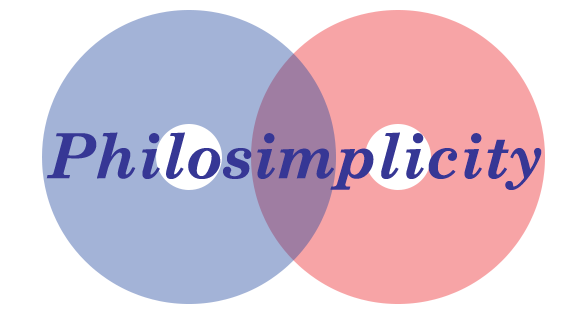Philosophy in the News is a segment which covers articles with direct and indirect relevance to philosophy. In this month’s post we’ll be covering stories from November. You can check out previous Philosophy in the News posts here.
Why philosophy is so important in science education Subrena E. Smith writes in Aeon Magazine about the dynamic relationship between philosophy and science — a relationship that is unfortunately often underappreciated or sometimes outright ignored by scientists. Smith briefly reflects on the history of philosophy, the role it played in the emergence of science as a discipline, and the role philosophy continues to play in making sense of the meaning of scientific processes and findings. Needless to say, future blog posts will go into detail about many of the ideas discussed in the article.
Gandhi the philosopher Was Gandhi a philosopher? Writing in Aeon Magazine, Richard Sorabji indirectly makes a case for why Gandhi was a philosopher by exploring the complexity of Gandhi’s notions of nonviolence and freedom. His conceptions of both draw from a multitude of traditions native and foreign to India. It’s important to note that while words like freedom and nonviolence imply static, and even simplistic definitions, these words were chosen by Gandhi as “translations” of much broader ideas. For example, for Gandhi the idea of nonviolence is wrapped in the concept of ahimsa, something foreign to those unfamiliar with Indian religious traditions. Reduction of the concept of ahimsa to nonviolence allowed Gandhi to connect with a global audience but might have missed some of the complexities that Gandhi wished to convey. Sorbaji lightly touches on some of these dilemmas in his article.
The Baltimore Cops Studying Plato and James Baldwin David Dagan of The Atlantic details a police department training initiative lead by detective Ed Gillespie. The program is unusual in that it uses a liberal arts curriculum as a means of promoting self-reflection and empathy in the context of policing. While the long-term effectiveness of such a program has yet to be seen, the initiative illustrates the utility of philosophy in an untraditional context. After reading this article, check out this other one in The Guardian for extra credit.
Every Parent Wants to Protect Their Child. I Never Got the Chance. To fight for my son, I have to argue that he should never have been born. Jen Gann, a mother of a boy with cystic fibrosis details her experience learning about her son’s diagnosis and recalls the failure of a genetic screening to properly identify her likelihood of conceiving a child with CF. As the title implies, the article contemplates a parent’s duty to prevent their child from being harmed. While children with terminal illnesses can’t be unborn, the law does note that a failure of medical due diligence which could have led to the prevention of such a life can be prosecuted. Through personal narrative and a reflection on legal and political debates, the article touches on very deep philosophical topics — the inherent value of life, questions of ethical obligation, and identifying our responsibilities to the unborn.
Is goodness natural? In Aeon Magazine Nakul Krishna writes about one of the most renowned ethicists of the 20th century, Philippa Foot. The article details Foot’s life, as well as the historical influences which would shape her approach to ethics. Responding to ethical notions of contemporaries and partly influenced by World War II, Foot spent her career working towards a modern conception of virtue that many normative theories of ethics simply didn’t address. This article provides a great overview of topics that will be covered on the blog soon.
Jerry Fodor (1935-2017) The Daily Nous briefly discusses the death of Jerry Fodor, who was greatly influential in the areas of philosophy of mind and cognitive science. His work helped establish frameworks like the modular theory of mind which benefited philosophy and psychology.
It’s Never Too Early to Learn to Think Marcello Fiocco thinks that philosophy begins with thoughtful reflections about one’s everyday environment, and this story details the implementation of this idea into a grade school curriculum.
What Is Philosophy, Anyway? This article provides a snippet of a response answering the question “What is philosophy?” in honor of World Philosophy Day last month.
Animal Pain and the New Mysticism About Consciousness Brexit isn’t just about immigration and economics; a vote on an amendment to Article 13 of the Lisbon Treaty has brought the issue of animal welfare to the forefront. Supporters want future UK law to spell out animal sentience as clearly as Article 13 whereas proponents see the legislation as redundant. Regardless of the politics, the issue touches on interesting philosophical questions.


2 Comments